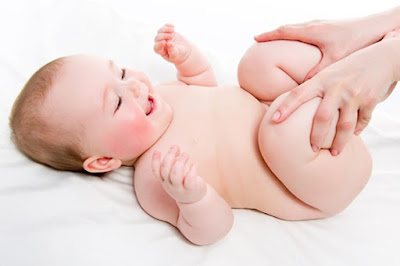Managing Common Skin Problems in Babies and Young Children
Knowing Your Skin Make-up
Naturally from its makeup, the skin serves as a protective barrier.
Physiological lipids are essential components of skin and play a crucial role
in the skin’s barrier function. Found mostly in the outermost layer of the
skin, lipids hold skin cells together and retain moisture in your skin.
The lack of lipids weaken the skin’s barrier function, resulting in
dehydrated, flaky, sensitive or irritable skin.
Dry skin is a form of
'impaired' lipid barrier, causing it to:
• Allow irritants to penetrate making the skin more prone to infection
• Be vulnerable to soaps, detergents, germs and various allergens
• Worsen with exposure to chemicals, changes in environmental conditions
• Result in itch, flaking, cracks and bleeds even if left untreated.
• Allow irritants to penetrate making the skin more prone to infection
• Be vulnerable to soaps, detergents, germs and various allergens
• Worsen with exposure to chemicals, changes in environmental conditions
• Result in itch, flaking, cracks and bleeds even if left untreated.
Atopic eczema
Atopic eczema is largely attributed to genetic makeup. More than half of the children with atopic eczema will have a direct family member with a skin condition – either eczema, dry or sensitive skin. The condition is usually managed with a combination of steroids, moisturisers and anti-histamines to reduce the itch. Steroid cream is a first line treatment because it is effective in reducing itch and redness caused by eczema. It is considered safe if used under a doctor's supervision. However, unregulated long-term use of steroid may produce side effects like thinning of the skin.
Hence, non-steroidal alternatives like moisturisers with PEA (Palmitamide
MEA), which possess anti-inflammatory and anti-irritation properties are recommended. Such
moisturisers have also been backed by clinical studies and are clinically
proven to retain moisture while significantly reducing itch and irritation in
atopic eczema patients.
Moisturising as Part of a Daily Routine
Moisturising should not just be a response to dryness, but rather a routine to maintain general skin’s elasticity, boost hydration and retard ageing. Moisturising need not be limited to twice daily. Someone who is experiencing itch or flaky skin may be required to apply coats of moisturisers every few hours a day and invest in a heavier moisturising cream to last through the night. Moisturisers are not all the same. Some are formulated for better integration into the skin to deliver longer lasting hydration.
To minimise skin’s irritability, here are some cleansing and moisturising tips:
• Select products that are hypoallergenic and free of preservatives, sulfates and colourants
• 10-15min warm shower or bath with a gentle cleanser that is fragrance-free and non-lathering.
• Cleanse with warm rather than hot water as the latter dries out the skin
• Patting away the excess water
• Immediately following with moisturising lotion while the skin is damp. Moisturising is most effective on damp skin which is more absorbent than dry skin
• Select products that are hypoallergenic and free of preservatives, sulfates and colourants
• 10-15min warm shower or bath with a gentle cleanser that is fragrance-free and non-lathering.
• Cleanse with warm rather than hot water as the latter dries out the skin
• Patting away the excess water
• Immediately following with moisturising lotion while the skin is damp. Moisturising is most effective on damp skin which is more absorbent than dry skin

